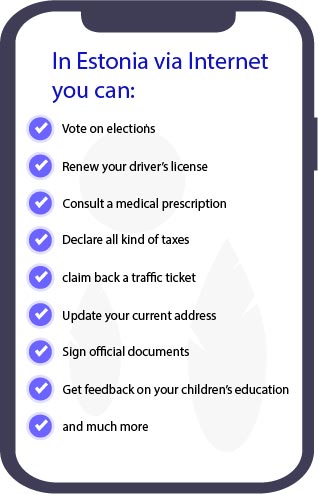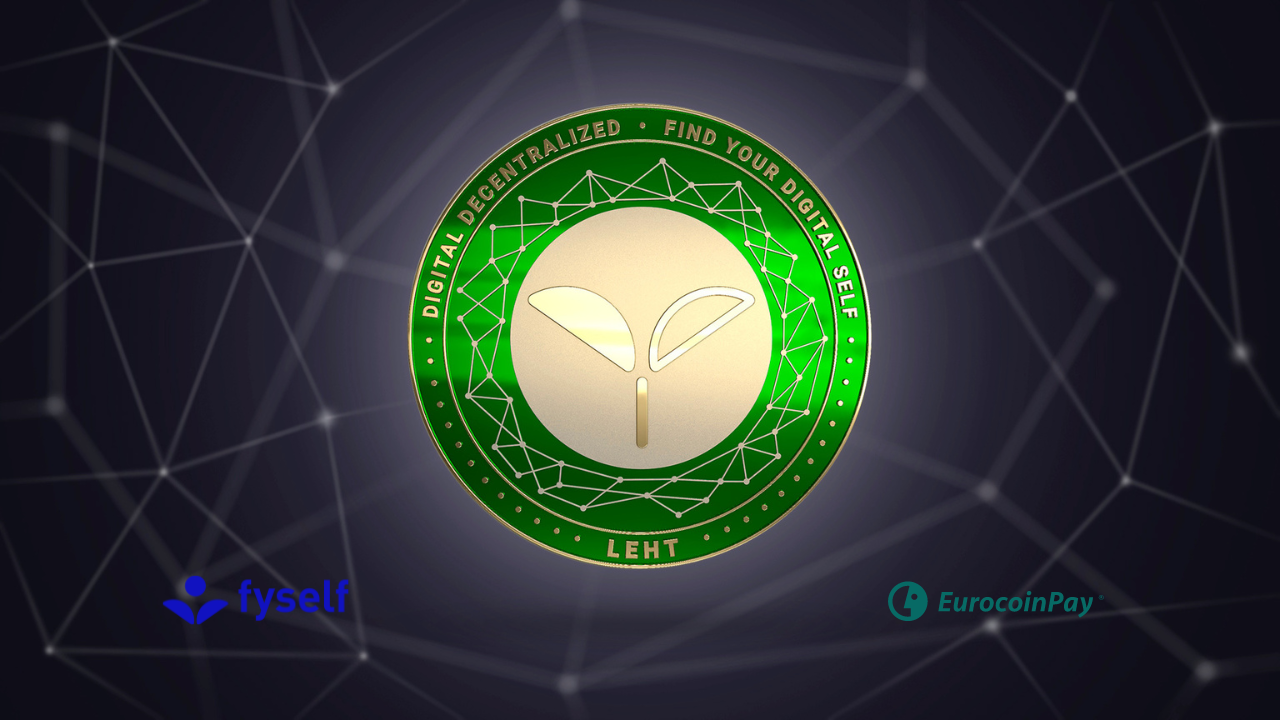From Estonia to the world
Estonia has managed to be considered the first digital nation and it is imposing challenges to the rest of the world. In particular, to the most developed countries which are far from reaching the levels of social computerization already accomplished in Estonia.
An Estonian resident can perform from his computer or cell phone the most dissimilar procedures, accreditations, institutional records and even legal acts.
The Estonian prime minister removed the use of paper in meetings with his subordinates. 20 years ago he established the digital signature for the approval of the laws that govern and are endorsed in the country.
Estonia, a digital country
Creating a company, updating your passport, making purchases for the week is totally possible by using a mobile device with Internet connection.
Moreover, government management not only enables, but encourages the use of technologies to accelerate almost every process in that small, but highly developed European country.
An online health-care system
Estonians check their medical records online. Each health institution can access an updated version quickly and reliably. As a result, you instantaneously avoid common mistakes during decision-making to treat all types of diseases.
You can access the medical history from ambulances with GPS which are under the control of the hospital that they are taking you to.
They can lead you directly to operating rooms. This guarantees that doctors can make surgical operations with the needed urgency and immediacy.
There in the clinic, the medical staff updates all the information permanently. This way hospital centers and doctors receive real-time updates on the evolution of the patient. Even the family can be aware of every medical procedure.
«I should have called the Estonians when we were setting up our health-care website»
Barack Obama during a visit to Estonia, september 2014
Procedures, in the cloud
Virtually all official formalities can be done digitally, 24 hours a day and 365 days a year. Very few activities require the physical presence of individuals.

Towards a digital education
In elementary schools, students learn about cybersecurity, robotics and programming. The greatest advances in technology are considered as common. 3D printing laboratories are common in schools. Also augmented and virtual reality will soon be another excuse to enter classes and soak up knowledge from an early age.
In Estonia more than 70% of GDP comes from services, especially those related to information and communication technologies. This favors all the processes of daily life and avoids unnecessary expenses and above all it speeds up the economic engine and the social life of people. But the protagonists of this digital nation do not believe that their achievements are unattainable for others. Estonians say that if they have managed to build a digital society, the rest of the world can do it too.
An online residence for Estonians
The most significant contribution to a digital nation lies in the transnational digital identity document. Reaching the digital residence E-Resident constitutes a great contribution to the universal digitalization of rights, this author has evidenced it.
The hit of the show is the virtual residence. Estonia aspires to be to digital services what Switzerland is to banking services
Virgina Collera in «El país Semanal»
The E-Resident is not a visa or passport. The E-Resident has become the first instrument created to manage an international business in an extremely simple way: under the governmental support of this small country, even if the future resident has not visited that territory.
The aforementioned article in the Spanish Journal El País Semanal assures that “88% of Estonians surf the Internet daily and 87% of the population between 16 and 74 connect to the government portal. The digital breach is overcome.
Entrepreneurship in the first digital nation!
Applicants and entrepreneurs from all over the world have already become E-Residents. Estonia is not a tax paradise, rather the opposite: everything is transparent, safe, airtight and quiet.
It is a digital nation that favors true entrepreneurs who seek to concentrate their efforts on the development of business and not on methods to evade law or make money in ways they couldn’t by following the law.
“Eastern Europe is very different from Silicon Valley, but we have something in common: highly trained professionals”
Ragnar Saas, founder of @Lift99co
Perhaps few people know that Skype was created in Estonia. But for Estonians this fact is a national pride. The Swedish Niklas Zennström and the Danish Janus Friis developed this project with Estonian engineers and computer scientists, hosting their enterprise in the ex-Soviet country. From there, Skype has become one of the most important communication platforms in the world.
Thousands are the projects that are being developed today from this small but great digital nation that, without reaching 2 million inhabitants, moves towards achieving a very high worldwide reputation.
«I am proud to be the president of the only state with a digital society.»
President of Estonia Kersti Kaljulaide on an interview whith «La nación«
Balance between security and Freedom
With this digital development, Estonia achieves a balance between security and freedom. And it provides citizens with a network of digital services based on a secure online identity. Kaljulaid insists that in a digital government the final end is not technology itself. It implies rather using it as a tool to achieve a change in the way of governing towards a more transparent, citizen-centered and less corrupt State.
President Kaljulaid said that the model for a digital state cannot be copied by another country. “Each nation must make its mark.” The dignitary offers help to share the experiences of its government agencies in order to reproduce certain practices in other countries, depending on the needs and context of each nation. Kaljulaid is the first woman president and the youngest person to assume the leading role in this country.
An online identity for Estonians
After massive training every citizen in 2002 received an identity document containing an electronic chip. With it they access all the bureaucratic systems of the State.
Each act of registration leaves a trace and an indelible mark on the system that currently includes the most advanced blockchain technology.
Citizens are the only ones who have real ownership of their data and are able to report any interference as this represents a crime in the Estonian code.
How did they do it? Toomas Hendrik Ilves, president of Estonia from 2006 to 2016, said:
“It is essential that we create a strong identity that demonstrates that someone is who they claim to be. You also need an architecture that allows states to deliver services to citizens. We built Xroad, based on blockchain technology, which allows interoperability and was aired in 2001. It does not mean that everyone should have it, but it is an available and free system.”
What is FySelf, what is it for? You will soon discover this new platform developed from the Digital Nation, for the world, for citizens and for the benefits of Mankind.
Artículos relacionados


